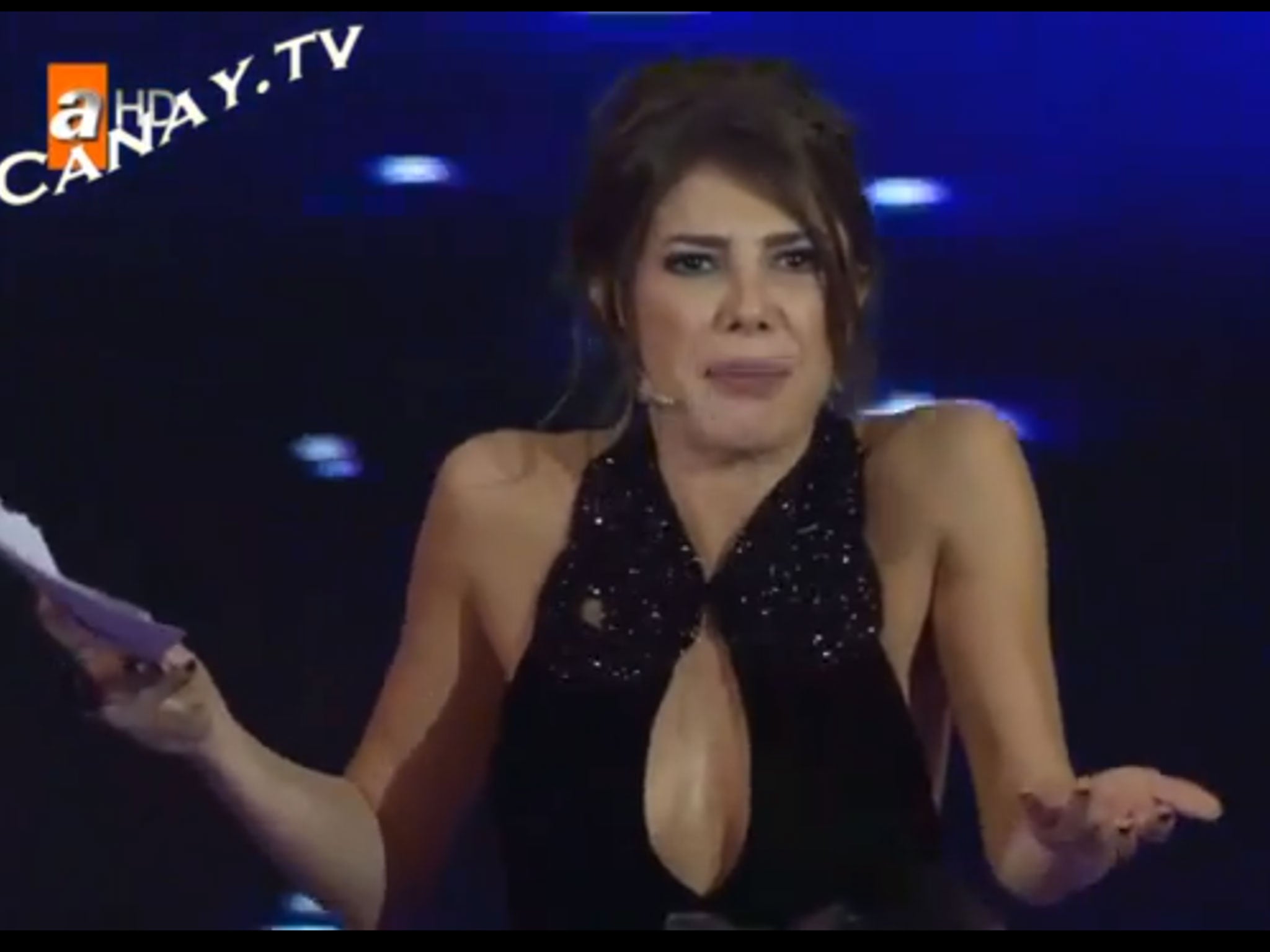Gozde Kansu dismissal: Women shouldn't lose their jobs for bearing the ‘assets’ they were hired for
The Turkish TV presenter said 'sacrificing' her was the easiest option for producers

In June, a brief media hullabaloo followed the Holly Willoughby ‘boobgate,’ when a relatively small number of complaints were registered to BBC show The Voice about Willoughby’s pre-watershed cleavage. Now, Turkish TV presenter Gozde Kansu has allegedly been sacked from her job on the country’s “Veliaht” show, after the ruling political party AKP branded her outfit “extreme” and “unacceptable”.
At the time of the Willoughby debacle, I was surprised to hear some of my own friends agree that her dress was “inappropriate” for children. It was as if her breasts had a life, and a moral currency, entirely of their own and could thus be deemed offensive, in the same way as a presenter’s sexist or racist joke can be. But as her co-host Phillip Schofield pointed out at the time, via a tweet, the same parents would presumably not baulk at taking their children to a beach where there would be much more superfluous flesh on show than in a single plunging neckline.
It seems depressing that while the media is partly dominated by a healthy debate of the issues behind female representation – from the No More Page 3 campaign and the lads’ mags modesty debate to the roles available to female actors and presenters after a certain age – the women who are granted a less controversial public visibility are being harangued for what they wear.
It bears pointing out that both women were wearing dresses that must have been chosen for them by a stylist or wardrobe department and given the green light, directly or indirectly, by a host of directors, producers and co-workers. Then again, these are the sorts of entertainments programs that excel in manipulating contestants and audiences alike, by putting a premium on provocative twists and strong emotions. It seems that even the professional integrity of the presenters is liable to get caught up in this emotional crossfire; Kansu told Turkish news that “Sacrificing” her was the easiest option for producers, because she is just another woman.
It doesn’t seem like a great incentive to enter the industry when older women are pushed out, only for producers to end up in trouble for overexposing the physical assets that younger models have presumably been hired for. However, in an industry where nearly half of the workforce has undertaken unpaid work in order to climb the greasy TV pole and over 50% are freelance, it seems unlikely that a bit of hypocrisy is going to abate the constant flow of eager, young replacements.
Thankfully, Britain is a country where women can wear what they want. Yet once again, these scandals imply that where the female body is concerned, these freedoms have a limit. When women are criticised for wearing revealing clothes – whether it is for propagating rape or misleading children – it is it is not about breasts, it is about ideology. And when someone is losing their job over it – particularly through intervention from the political sphere – it is also about rights.
Join our commenting forum
Join thought-provoking conversations, follow other Independent readers and see their replies
Comments